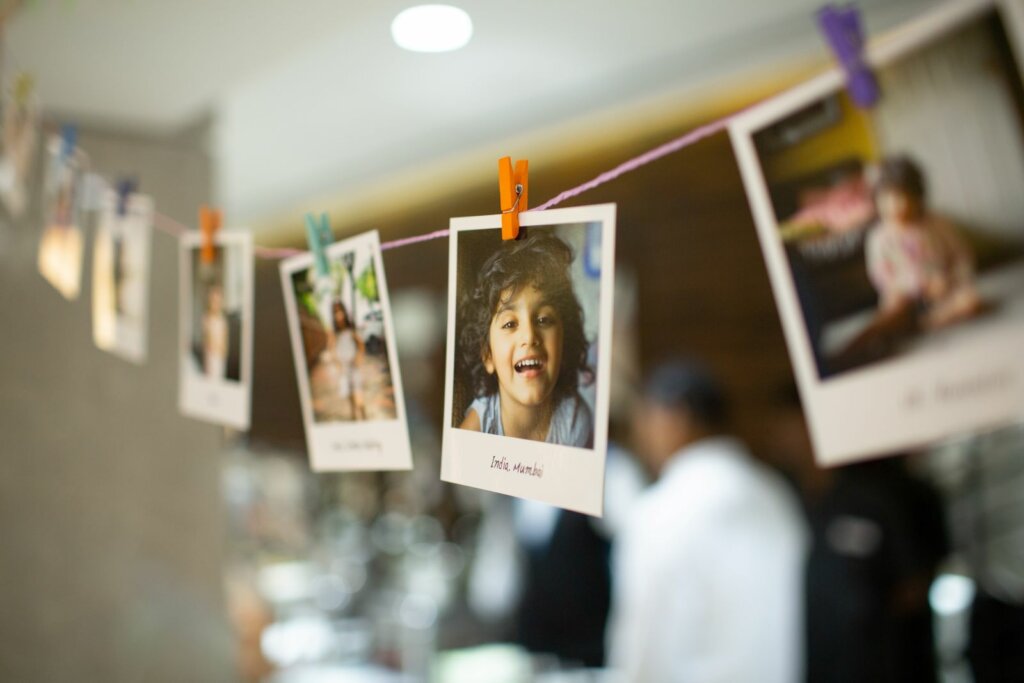I’m currently in Washington, D.C. visiting friends and it feels surreal. I went to university here and am visiting my old stomping grounds. I half expect to run into my younger self on the street because the memories are so visceral. The ghost of young me is present in a way she hasn’t been on previous trips. Maybe it’s because my college friends and I are approaching 20 years of friendship, or because they all have kids of their own and I’m recognizing how much things have changed. Whatever it is, I’m acutely aware of something my spiritual teacher says.
“A 5-year-old child is transformed in due course into a 15-year-old boy,” he said. “In 10 years, the child becomes the boy. Thereafter, you will never be able to find the body of the 5-year-old child. So the child’s body has certainly died.” He then mentions the boy growing into a man, then hitting middle age, then old age, until he finally dies and says, “The rest of the changes we do not call death; but in fact, all the changes qualify as death.”
We don’t recognize them as such but all the changes we go through are a sort of death. We can’t find the people we used to be except in memory and that’s what I’m getting in touch with on this trip. I’m not the person I was and neither are my friends, but we all remember each other when we were 18. We tell stories about our past selves, the shenanigans we got up to, how we met, who dated whom, and what happened when.
It’s fun to reminisce but it truly feels like we’re talking about people that are dead, just like my spiritual teacher says. None of us are the same as we were. A part of me wants to go back in time to those college days when my friends lived within walking distance. I want to travel in a pack to coffee shops and restaurants, where we took over large tables and other patrons gave us the side eye for being so animated. These days my friends don’t all live within walking distance. And when we travel in a pack it’s because there are multiple children in tow, not because we’re a group of 10 going out for dinner.
To quote my spiritual teacher again, “This expressed universe is nothing but a collection of temporary entities which are undergoing constant metamorphosis according to the sweet will of nature.” We are all temporary entities and we are all constantly changing. Nothing stays the same. Nothing. I have some sadness about that and at the same time as I wind down this trip, I’m enjoying my stay, remembering who I was and how I felt. I’m appreciating that I do have 20 years of friendship under my belt and for a short time at least, I can say hello to 18-year-old Rebekah.
I dream of a world where we recognize we are all temporary entities undergoing constant change. A world where we understand that as we age, our past selves no longer exist. A world where we remember who we used to be and take the time to grieve for those small deaths while also appreciating who we are now.
Another world is not only possible, it’s probable.
This is a repost from Earth Day 2018. While many things have changed or progressed, others have not. In other words, this post is still relevant. Enjoy.
I watched a chilling Walmart commercial the other day. The premise: A child keeps spitting out a pacifier, which the family’s dog then slobbers all over. The kid also drops a sippy cup in the mud. The mother decides to reorder pacifier after pacifier and cup after cup instead of sterilizing the originals. The commercial ends with the dog surrounded by pacifiers and the mom patting the dog with a “What can you do?” sort of smile on her face. In the background, singers croon, “I just can’t get enough, I just can’t get enough.”
The commercial, and the message behind it, horrifies me. Particularly considering all our environmental problems. A friend shared a post on Facebook recently depicting the state of our world’s beaches in Bali, the Philippines, and Hawaii. Gone are pristine sandy shores. In their place we have cups and cutlery, we have bottles and bags. In the comments, many people said, “Pick up after yourselves! Throw stuff away!” I agree, throw stuff away, but that doesn’t address the whole problem.

There’s no reason to have a single-use plastic water bottle. Photo by Brian Yurasits on Unsplash
According to Greenpeace, even when plastic waste is collected, it can blow away and end up in rivers or oceans. Major rivers around the world carry an estimated 1.15 million to 2.41 million tons of plastic into the sea every year – the equivalent of 100,000 garbage trucks. Not all of that comes from plastic blowing away, obviously it also comes from littering, but I’d like to point out the trash still goes somewhere.
We think once the garbage truck picks up trash the problem is solved, but it’s not. Commercials like Walmart’s divorce us from the consequences of our actions. Reordering one pacifier after another because the dog drooled all over it and throwing perfectly good pacifiers away contributes to waste. I read somewhere that the most important part of the mantra “reduce, reuse, and recycle” is “reduce,” but that doesn’t contribute to economic growth so we don’t focus on it as much.
In yogic philosophy, there is a tenet called aparigraha. It means non-indulgence. Specifically, not indulging in the amenities and comforts of life that are superfluous for the preservation of physical existence. People usually have a hard time with that one. “Does that mean I can’t buy the latest iPhone? What about a new computer? Am I supposed to live in the woods off rainwater and tree bark?” Yes! Just kidding. We can’t all live in the woods. Also, what is essential for our survival changes with time, place, and person. Perhaps 15 years ago it wasn’t crucial for everyone to have internet, but these days it’s another utility like gas and electricity.
What I never grasped until watching the Walmart commercial is aparigraha isn’t about deprivation. It’s not being a martyr. It’s about Earth. It’s about paying respect to Mother Nature and realizing that my actions contribute to the destruction of the environment and destroying the environment means more pollutants and poorer health. It means wiping out certain species. It means natural disasters like the ones we’re currently experiencing. If the environment we reside in becomes a toxic wasteland, where are we supposed to go?
I could end this post here and proclaim the planet is doomed and we’re all screwed, but I won’t. I want to again go back to one of my favorite quotes from my spiritual teacher who said, “Difficulties can never be greater than your capacity to solve them.” Did you know scientists recently created an enzyme that eats plastic? It turns plastic back into a more usable form. Discoveries like that are taking place every day, but mindfulness is required on our part. We must break our addiction to consumerism. We need to change our way of thinking to create a world we all want to live in.
I dream of a world where we reduce our consumption. A world where we think twice before casually throwing something away. A world where we understand non-indulgence helps the environment and ultimately helps us. A world where we practice a new way of thinking to save planet Earth.
Another world is not only possible, it’s probable.
Even though Passover is long over, I keep thinking about a story I heard. There’s a perception that during the exodus when God parted the Red Sea the Jews walked up to the water and tada! The water parted. However, Jewish teachings state that’s not what happened. The Jews waded into the water up to their knees and nothing. They kept going up to their waists and still nothing. Their chests, no change. The water came all the way up to their noses, meaning they could no longer breathe, and then the water parted.
So often when it comes to miracles, I want them to happen immediately, before I feel any pain. I want the Disney-fied version of events where there’s minimal struggle and I’m plodding along and everything is easy peasy. Sometimes life is like that, but oftentimes it’s not. Oftentimes, higher power waits until the last possible second to deliver a miracle. What to do? Keep moving with faith.
I’ll be honest, if I was escaping Egypt and kept wading into the water without being able to swim and not having a flotation device, I probably would have turned back. I don’t think I would have kept going. I would have acted from a place of fear and not experienced a miracle. I would have done the opposite of what Rumi advises which is, “Move, but don’t move the way fear makes you move.”
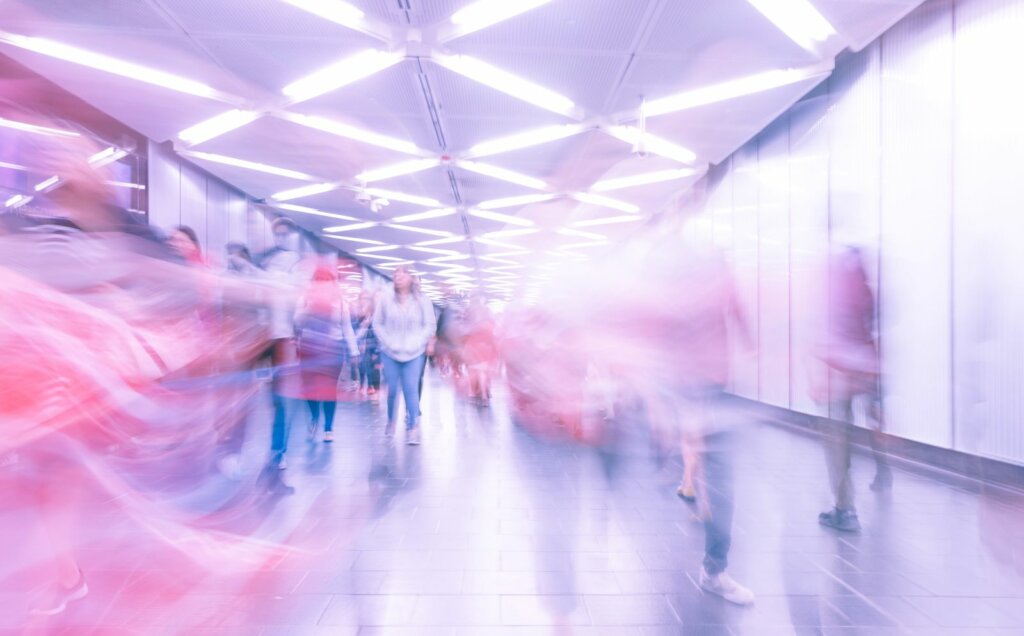
Even when it’s blurry, keep moving. Photo by Martin Adams on Unsplash
I often move the way fear makes me move, especially when it comes to money. Bank balance running low? Better apply for a million jobs even if I’m not really interested! No new clients? Start contacting everyone and their mother! But that doesn’t work for me. Desperation rarely does.
The question then, is how can I move with faith? What sort of decisions do I make when I believe things will work out? What if I truly believed the universe has my back, even if I don’t see any evidence until the last possible second?
From that place, I’m calmer, curious, and open. From that place, I remember the magic and the mystery of the universe. When I’m in faith, beautiful things can come out of the blue. I receive a random email or telephone call from someone looking for my ghostwriting or content writing services. I find a random object I’m looking for, such as Play-Doh, on the side of the street for free.
Tosha Silver writes in her book Outrageous Openness if you think of the Divine as your ultimate protection and your Source for everything, “Then the Universe can use anything it wishes to meet your needs. You’re no longer limited to what your conditioned mind thinks is possible.” She has countless stories of this happening in her life and in the lives of others. For instance, she found an apartment through a hairdresser and someone else found a literary agent by bowling them over in a yoga class. Fear leads us to believe we must force things; we have to make them happen. Trust and faith show us we can relax and be shown the next steps on our path. In other words, faith causes us to move differently.
I dream of a world where we soothe our fearful parts when they’re freaking out. A world where we understand what’s ours is ours and will show up at the perfect time in the perfect way. A world where instead of moving from a place of fear, we move from a place of faith.
Another world is not only possible, it’s probable.
I keep thinking about the swiftness with which Silicon Valley Bank (SVB) collapsed. In the span of 48 hours, it went bust because as interest rates rose, VC capital to SVB’s portfolio companies decreased. That required the companies to start withdrawing deposits from SVB to fund day-to-day business operations but those deposits sat in bonds that were losing value by the day. The need for cash forced the bank to sell their illiquid bonds at a loss, and boom, financial panic.
Whenever I hear stories like these, I strangely have a surge of hope that it portends the fall of capitalism. Don’t get me wrong, I don’t wish financial hardship on anyone. I don’t relish the idea workers won’t get paid or that their retirement accounts will vanish. But I do very much wish corporate capitalism will fall. Big corporations running the show are destroying, well, everything. There’s a place for small-scale capitalism in the form of local shops and restaurants, but these huge conglomerates exacerbating wealth inequality are choking the life out of us.
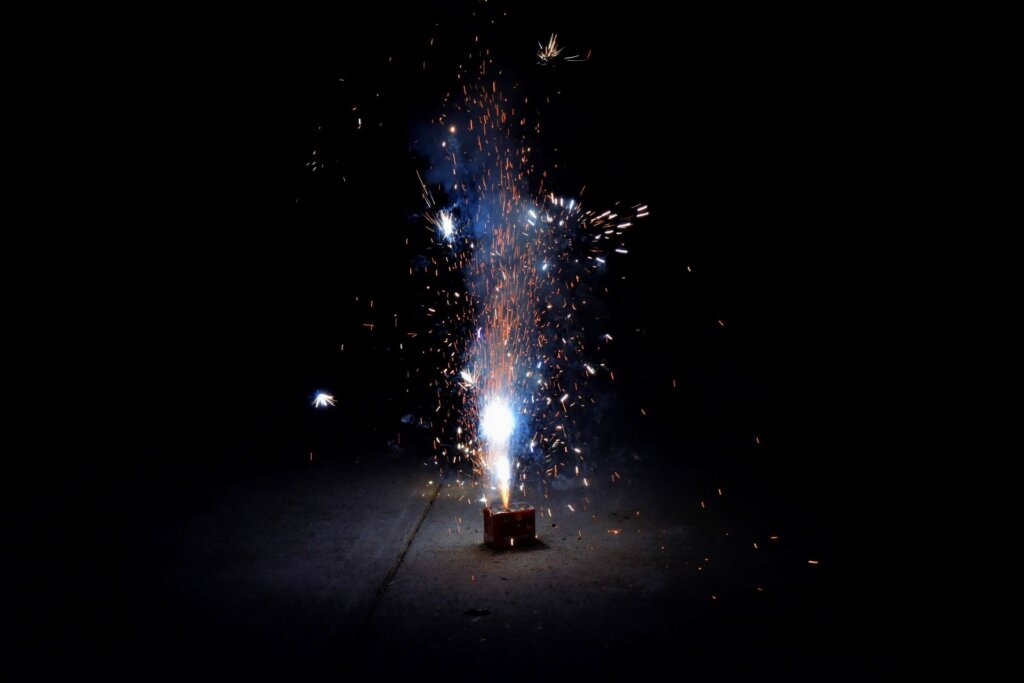
This picture will make more sense later. Photo by Tzvi Kilov on Unsplash
I had a visceral experience with wealth inequality this week when I went to San Francisco for an appointment. Every 10 feet I either spotted an unhoused person or was solicited by one. It’s overwhelming to be somewhere people are shouting, “Excuse me! Excuse me!” every few feet, and not because they’re hawking goods but because they are in desperate need of something as basic as food.
I cried multiple times when I came home because it’s heartbreaking to witness the evils of capitalism in your face like that and also to know things could be different. The U.S. is the beating heart of capitalism and materialism and visiting Australia reminded me of that. I was abroad for Valentine’s Day and I barely remembered the holiday was occurring because there weren’t hearts displayed in every storefront. There weren’t exhortations to stock up on chocolate and teddy bears whereas here, every holiday is an opportunity to sell something, and the pressure to buy more, more, more is always there.
Is it any wonder SVB execs did what they did? I’m not absolving them of wrongdoing but I am saying we live in a culture where this sort of behavior is encouraged. And yet, SVB did fail and in that collapse, I take heart remembering my spiritual teacher said capitalism will explode like a firecracker, and furthermore, no one will know it’s about to happen even 15 minutes before.
The time element is likely hyperbole but the strong grip capitalism has on our society is not interminable. It can change and it will change because capitalism will collapse under the weight of its own greed. I don’t know what that turning point will be. I don’t know what event will finally cause capitalism to explode like a firecracker, but I know it’s coming. And I also know I welcome that world because I experienced a small taste of it when I was in Australia, which yes, is a capitalist country, but not nearly as materialistic as the good ole U.S. of A.
I dream of a world where capitalism is a faded memory. A world where compassion, kindness, and care for others are valued over greed and amassing as much wealth as possible. A world where in the moments we wonder if that future exists, we remind ourselves it does because as SVB shows us, capitalism will explode like a firecracker and it may happen fast.
Another world is not only possible, it’s probable.
This is a repost from October 2014 when I was living in Missouri.
My recovery mentor often says to me, “God is slow but always on time. When it’s time, he moves fast so be ready.” Today I’m marveling at how true that is, particularly because I’m in a place that has seasons. In the Bay Area, there are two seasons: the dry season and the rainy season. Missouri has a proper spring, summer, fall, and winter.
Last Wednesday, I was in shorts and a t-shirt, dipping my legs in the lake. The very next day we had a thunderstorm replete with rain and lightning and then it was cold. Like, pull-out-my-fall-jacket cold. Like, turn-the-heat-on cold. It went from summer to fall in the course of a day. I realize comparing change to the seasons is not so valid anymore, considering that today the temperature is back up to the 70s, but change happens quickly in life too.
I read an interview about the recently departed Joan Rivers whom I’d always unfairly dismissed as a mean-spirited comedian. There was a point in her life when she was blacklisted from The Tonight Show, her husband Edgar had killed himself, and her career was floundering. She seriously contemplated suicide.
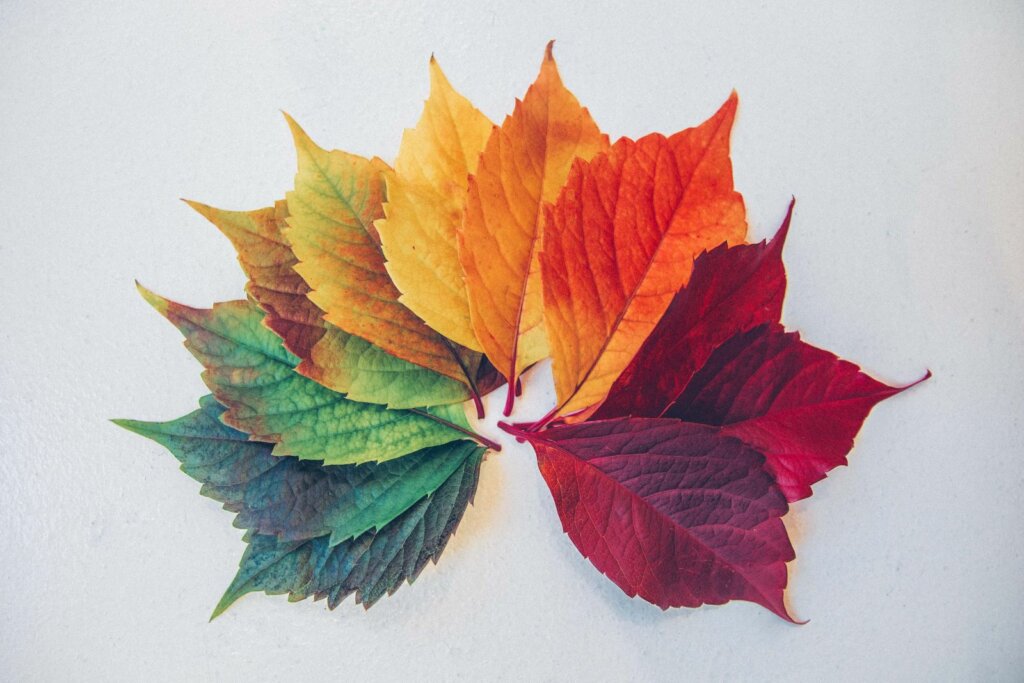
What an excellent picture. Photo by Chris Lawton on Unsplash
She said, “What saved me was my dog jumped into my lap. I thought, ‘No one will take care of him.’… I had the gun in my lap, and the dog sat on the gun. I lecture on suicide because things turn around. I tell people this is a horrible, awful, dark moment, but it will change and you must know it’s going to change and you push forward. I look back and think, ‘Life is great, life goes on. It changes.’”
As we all know, Joan went on to have a successful career and a rich life, but there was a point when she was thinking about ending it all. I also reflect on the turn of events for friends of mine. They’re getting married this winter and they didn’t even know each other a year ago! They met in the winter of 2013, got engaged in June 2014, and now they’re getting married.
Even in my own life, I’ve seen how change happens quickly. One day I was settling into my new abode and within an hour a sweet situation turned sour and I started making plans to live elsewhere.
I often think change happens painfully slowly, that it’s gradual – and that is certainly true – but sometimes it also happens quickly, and we have no idea it’s coming even 10 minutes prior. At this point in my life when things are so up in the air, when I have no idea where I’ll be next, what will happen next, what lies before me, it’s heartening to remember my life won’t always look this way. That change happens on the universe’s timeline, and when it happens it can happen fast so I need to be ready.
I dream of a world where we remember the only constant in life is change. A world where we realize the way things are now is not how they’ll always be. A world where we understand our troubles pass sometimes quickly and sometimes slowly. A world where we hold dear the truth that when it’s time for something to happen, it happens fast so it’s up to us to be ready.
Another world is not only possible, it’s probable.
This repost is from almost exactly six years ago but is still relevant today. Enjoy.
I had a dream the other night my sister, Rosie, and I slept in the same bed. She started hogging all the covers and I yanked them back from her and said, “No. You can’t take all the covers.” It’s not a dream based on reality but nonetheless, it got me thinking about greed, especially as it relates to the world’s resources. A group of people is hogging almost all the resources leaving the rest of us shivering in the cold.
Activist Peter Joseph said, “The value system disorder of rewarding, in effect, generally the most ruthless and selfish in our society, both by financial means and then by public adoration and respect, is one of the most pervasive and insidious consequences of the incentive system inherent to the capitalist model.”
I’m with you, Peter. By and large, we as a society seem to be OK with greed as long as it comes from a place of power. No one bats an eye when we hear about corrupt politicians or businessmen engaging in shady backroom deals. In fact, I think we expect it. We’ve become so used to greed and selfishness it seems normal. In a way, it is normal. We all have the same tendencies within us. In yogic philosophy, these tendencies are called vrttis.

Let everyone have a piece of the pie. Photo by Erol Ahmed on Unsplash
My spiritual teacher says, “The correct way to get rid of depraving tendencies is not to repeat to oneself that I shall avoid this tendency or that. Suppression is not the proper way to weaken these tendencies. Do not suppress, but channelize. Humans are psychic beings. Reconvert the psychic into the spiritual. Let elevating tendencies be converted into a spiritual wave.”
My point in using that quote is to say yes, we all have the capacity for cruelness, greed, selfishness, but that doesn’t mean we say, “Oh well. It’s natural. Let it do its thing.” No. As human beings, we are constantly evolving and that means using rationality, it means channelizing our natural propensities toward something else. If I want to strangle a cat, instead of acting on that impulse, it’s better for me to rip up a phone book, or scream into a pillow. The same is true, and can be true, for greed.
I realize not everyone is interested in converting their natural impulses, that’s fine, but it means we as a society have to impose laws and sanctions. We already have consequences for things like murder and theft, why don’t we have consequences for hoarding wealth? Why do we instead encourage it? I already know the answer to that question, but I’d like to go back to my dream.
If Rosie and I were still children living at home, what would happen if we started bickering about the bed covers? Our parents would come in and either make us share or give us separate bed covers. They would come up with a solution – they wouldn’t say, “Oh well. It’s human nature to be greedy Rebekah, get over it. You’ll just have to shiver.”
I’m proposing that we all start acting like parents, coming up with solutions that work for all of us. I’m proposing that we act like adults and say, “No” to people who want to hoard all the covers, so to speak, and instead encourage a fairer share.
I dream of a world where we work together to curb the natural impulse toward greed. A world where we say “No” to hoarding wealth. A world where we understand we can channelize our natural tendencies into something else. A world where we ensure people receive a fair share.
Another world is not only possible, it’s probable.
One of the most striking things for me about being in Australia is not the accent or driving on the left side of the road, it’s their take on security. Going through airport security for domestic flights is a breeze – you leave your shoes on and there aren’t any restrictions on liquids. You’re required to remove your electronics but that’s it. Done.
When I visited the National Gallery of Victoria, I was confused because not only is the art museum free (except for certain exhibitions), there is no security check. Nobody rifled through my bag, and no one yelled at me for wearing my backpack on my back instead of on one shoulder. In contrast, the Met in New York specifically mentions both of those things on its website. Australians aren’t particularly worried about weapons because they don’t need to be.
Shortly after a mass shooting in 1996, elected officials banned semi-automatic and other military-style weapons across the country. On top of that, the federal government prohibited their import and lawmakers introduced a generous nationwide gun buyback program, funded with a Medicare tax. Many years later, lawmakers added a new National Handgun Agreement, a separate buyback act, and a reformulated gun trafficking policy to their legislative arsenal.
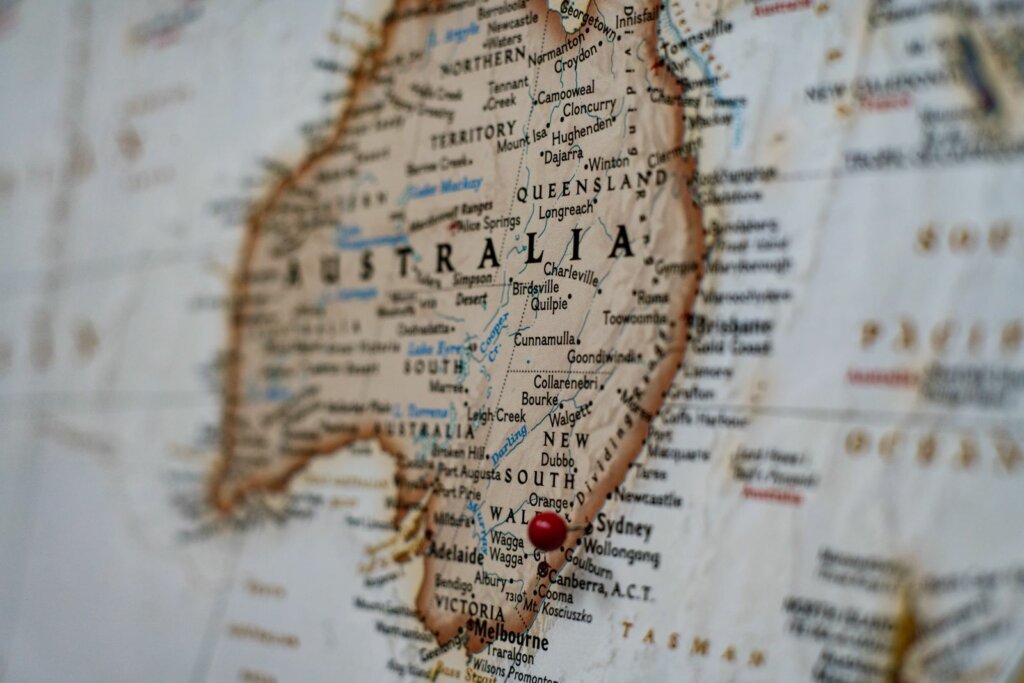
I wish the U.S. was more like Australia in some ways. Photo by Joey Csunyo on Unsplash
The result? Gun violence declined to a vast degree. In 2014, the latest year for which final statistics are available, Australia’s murder rate fell to less than 1 killing per 100,000 people. In contrast, the murder rate in the U.S. in 2020 was 6.5 killings per 100,000 people. And just in case you didn’t know, we had 647 mass shootings in 2022 alone.
People remind me the risk of being a mass shooting victim is low, statistically speaking, but you know what’s not low? The constant vigilance we live with as a society. There are reminders on public transit to say something if you see something. There are extensive security measures at the airport. We search people’s bags in certain public spaces and we have active shooter drills in schools. In other words, Americans are always on high alert for an attack, whether they’re aware of it or not.
Coming to Australia, I feel myself relax in a way I’ve never been able to the U.S. Yes, I could be stabbed, but frankly, I’d rather confront a knife than a gun. Why do we cling to our second amendment rights so fiercely? Some act as if the second amendment is a bulwark against tyranny when in reality, we’re already in a plutocracy or the reign of the rich.
The founding fathers weren’t some demigods who knew the best course of action for all of eternity. They were flawed human beings and their ideas about gun ownership are no longer relevant nearly 250 years later. How could they be? For context, at the time the founding fathers drafted the Bill of Rights, they couldn’t even conceive of indoor plumbing. Why are we still hanging our hats on their outdated ideas?
My spiritual teacher says, “Social ideals and systems should be formulated after considering the time, place, and person as well as the all-round progress of the society. It may be that something which is quite useful for a particular time, place, and person is totally worthless for a different time, place, and person. Society is not a static entity, but a dynamic one.”
Society is a dynamic entity, which means we can say, “You know what? We’re safer with fewer guns. Who cares what some long-dead white dudes said 250 years ago? Their ideas are no longer useful.” It can be done; we have a modern example in Australia and I have to tell you, I’m a fan.
I dream of a world where we remember society is a dynamic entity, which means recognizing ideas outlive their usefulness. A world where we remember we don’t have to cling to outdated beliefs. A world where we let Australia serve as an example of how to handle gun violence.
Another world is not only possible, it’s probable.
The new year is typically when many people start to set resolutions of how they want this year to be. They want to change an aspect of their life or behavior. Resolutions abound such as: “I want to lose weight,” or “I want to make more money.” But how do those things actually happen? How can we make a change stick? After all, most people abandon their resolutions by February, and sometimes even earlier, so it’s clear that merely setting the intention isn’t enough.
My friend introduced me to a concept that’s blowing my mind a little called the Triad of Change. Think of the triad as a three-legged stool consisting of structure, behavior, and perception. You need all three for change to happen, but for the change to be long-lasting and sustainable, you have to start with the leg of the stool that’s most enlivening for you and end with the most draining part, otherwise, you’re sure to fail.
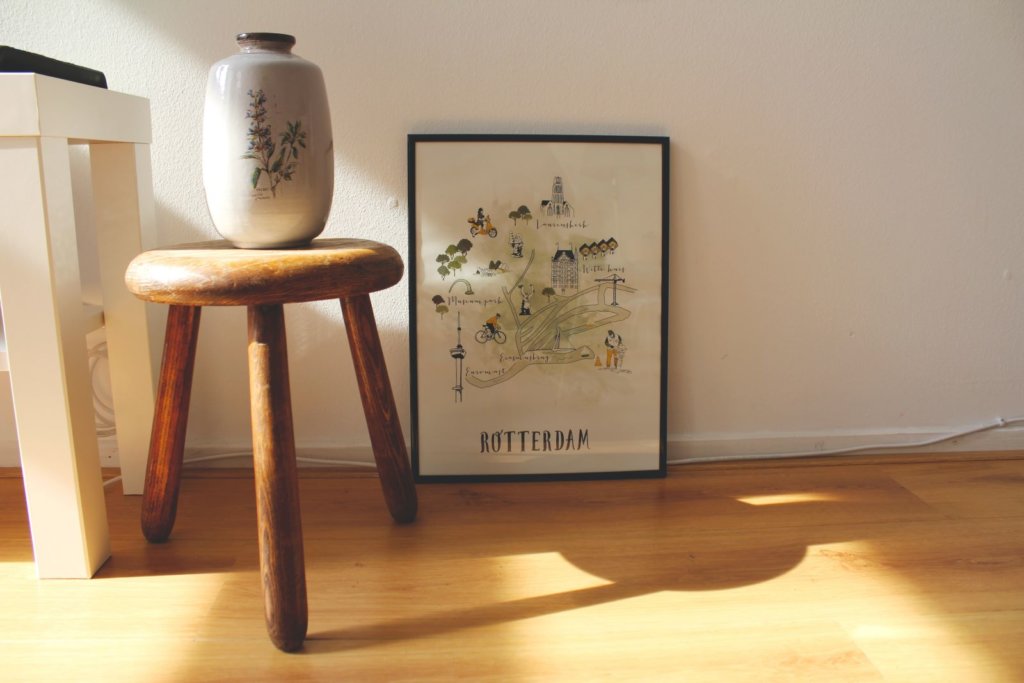
I like this picture because it captures both a stool and a feeling of movement with the poster in the background. Photo by John Boatile on Unsplash
Structure is the “where and how.” It’s budgets, plans, routines, etc. If you get excited by diving deep into the small details of life, start any change with structure.
Behavior is the “what.” It’s actions, activities, performance, etc. If it thrills you to just get out there and do something, start with behavior.
Perception is the “why.” It’s feelings, vision, purpose, meaning, etc. If you become animated thinking about how you want to feel, what you want to experience, or the big picture, start any change or decision with perception.
The triad of change is hugely relevant in my life right now because I notice I keep starting with my drain: structure. For instance, I’m flying to Australia soon, which is super exciting because the country has been on my bucket list for a long time. But instead of celebrating, I feel stressed and overwhelmed with all the details. “Should I book this Airbnb? What about that one? Would it be better for me to fly at this time or at this time? When should I plan the side trip to the Great Barrier Reef? Can I fit in a visit to Uluru?”
For some people, thinking about those details is enlivening. They clap their hands in glee wading through various Airbnb options. I am not one of those people. Making decisions from a place that’s invigorating for me, perception, means asking myself, “What do I want to experience?” and then going from there. I want to experience comfort so that means booking an Airbnb with air-conditioning. I also want to experience ease, and for me, that means being close to things, not in party central, but also not in the boonies. With that in mind, I found an Airbnb that meets my needs. I didn’t wade through 1,000+ listings or focus only on finding the cheapest place. I set myself up for success by honing in on what matters to me.
The Triad of Change concept is simple yet complex. I’ve found most of the literature about it online is esoteric, all of which is to say if you don’t understand what I’m talking about, you’re not the only one! You can message me if you want to talk about it in depth, but for the purposes of this post, it’s enough to ask yourself, “Which of the legs energizes me? What inspires me?” and then start from that place. You know what to end with by asking yourself, “Which of the legs drains me? What would I rather put off or outsource to someone else?”
Thus far this process is making my life easier and I have that wish for you too. Life is too short to feel drained all the time. Why not feel enlivened instead?
I dream of a world where we understand how to make a change stick. A world where we recognize the mechanisms that work for other people may not work for us. A world where we understand change doesn’t have to be hard or grueling, it can be easy and joyful. A world where we operate from a place that lights us up and we let that energy carry us through our days.
Another world is not only possible, it’s probable.
My dad told me about a TV show where people try to be the last person to survive in the woods on their own for a chance at winning $500,000. The premise is interesting because it touches on the themes of competition, human versus nature, and also resourcefulness. I get the appeal. But what I don’t get is the lengths people will go to in order to win.
One contestant swam into a frozen lake in an attempt to catch some fish knowing she’d get hypothermia. She explicitly told the camera she knew that would happen. The woman could have tapped out of the show at any time and said, “You know what? The $500,000 isn’t worth it. Take me to the grocery store,” but she didn’t. She literally risked her life all for what? Money. Money that frankly won’t last very long considering the rate of inflation.
Desperation is real and it pushes people to do things they otherwise wouldn’t. But this woman wasn’t a member of the Donner party, starving to death in the middle of winter. She was in a situation of contrived and self-inflicted desperation. I don’t fault this woman; I don’t know her or her story. She made her choice freely. No, instead what I fault is the toxic worldview pervading our society that lauds this sort of decision: materialism.
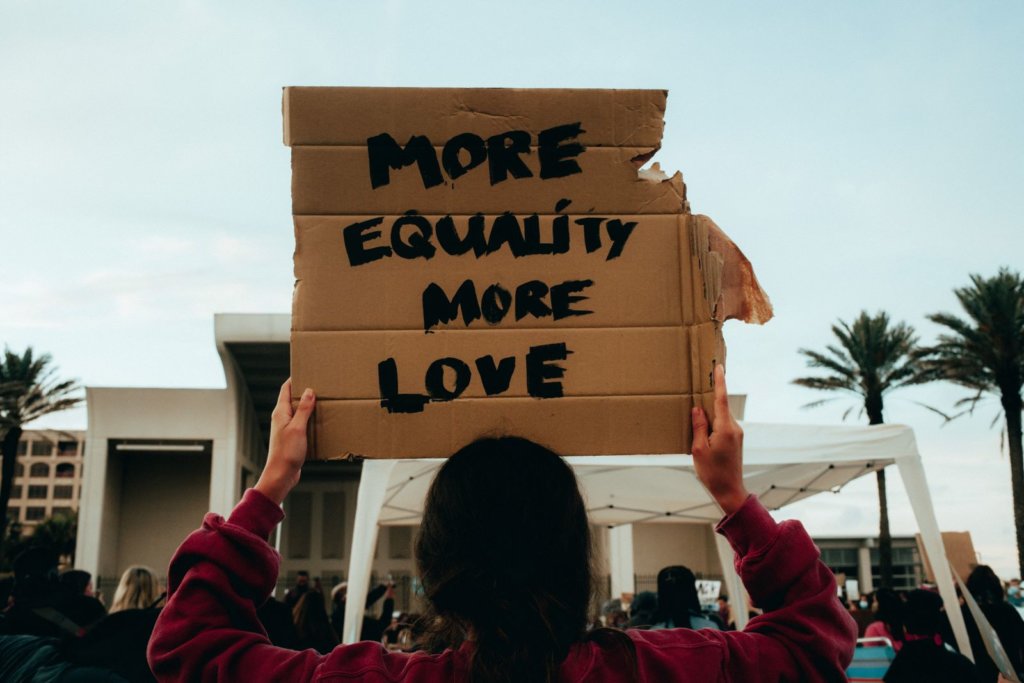
I agree! More equality, more love! Photo by Cody Pulliam on Unsplash
My favorite summary of materialism comes from a friend who says, “Under materialism, only matter matters.” Exactly. In a materialistic society, money and possessions are more important than love, community, and life. Not everyone is willing to become hypothermic for cash, but over and over again, we demonstrate human life isn’t worth more than money in indirect ways: child labor, exploitative working conditions, polluting the environment, etc. We are poisoning and killing one another for something ephemeral.
I’m not here to say money is unimportant because that’s a lie. It is important, but it’s not the only thing that matters. The worldview I use stems from tantra and my friend sums it up by saying, “Under tantra, everything matters.” What he means is matter matters. People matter. The environment matters. Spirituality matters. Under tantra, you take it all into account. Money is not the bottom line every time.
We take it for granted that materialism is the only way to operate in the world but it’s not. It’s a belief system and belief systems can change. A little religious inspiration for you that’s appropriate considering this time of year: Hanukkah isn’t really a story about oil lasting for eight days. It’s the celebration of people unifying against oppression and winning.
A quick recap: Judah and the Maccabees revolted against Syrian King Antiochus in 160 BCE. He enacted a series of harsh decrees against the Jews, including forcing them to give so much of their crops to the Syrian ruling class, the Jews had trouble feeding their families. Jewish worship was forbidden; scrolls were confiscated and burned. Sabbath and dietary laws were prohibited under the penalty of death. This small group of Jewish rebels fought against an army of thousands of men and won.
My rabbi, Michael Lerner, says, “Hanukkah is not just about having a response to the consumption craze around Christmas, it is about affirming a different worldview, a hopeful worldview. [It’s] about replacing cultures of domination with a culture of love and justice.”
We already have examples of worldviews toppling. We know it can be done because it’s been done before. We don’t need to keep operating as if materialism is the only game in town because it’s not. There’s another way to live, a better way. One in which we recognize the importance of bodies, minds, and spirits.
I dream of a world where we topple materialism. A world where we say, “No, materials are not the most important thing in existence.” A world where we recognize the existential value of all life forms. A world where we replace a culture of domination with one of love and justice.
Another world is not only possible, it’s probable.
I’m working on a novel about a 32-year-old woman who is deeply insecure but tries to mask it with false bravado. She second-guesses every move but tries to hype herself up by saying, “Go me!” and “I got this,” nearly every chance she gets. When I show small snippets of the novel to a writing group consisting primarily of women around my age, the feedback is positive. They’ve told me it’s highly relatable, either for themselves or because it reminds them of their friends. One woman commented this is the sort of book she’d stay up late reading.
However, when I show small snippets of the novel to a writing group consisting primarily of women around 30 years older than me, the feedback is negative. They compliment the writing itself and praise my strong voice, but hate the character. They say she’s self-indulgent and unlikeable. Same character, different audience.
The novel is very much a work in progress. I haven’t even completed the first draft so I’ll change 10,000 things from now and when I deem it ready for the world so who knows how people will respond at that point? Yet, regardless of the changes I make, the experience reminds me you can’t please everyone all the time and it’s not worth it to try. What strikes a chord with one person will be disharmonious to another. Also, depending on the age and stage of life, the same person will no longer like the thing they once enjoyed!
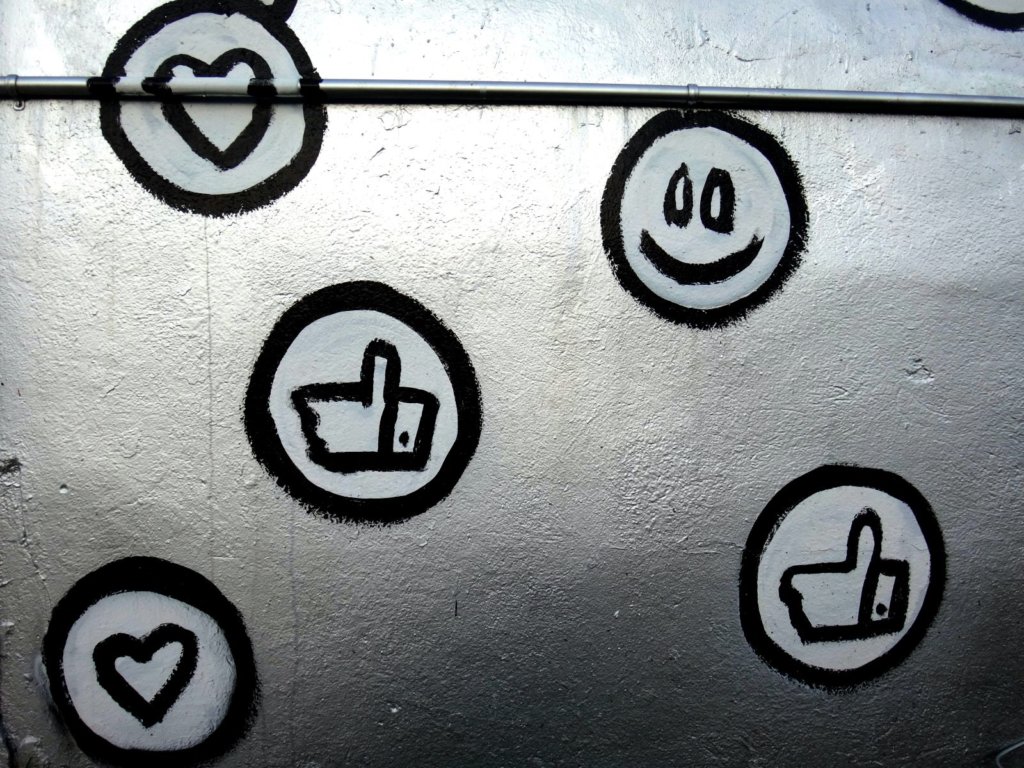
Likes come and go. Photo by George Pagan III on Unsplash
This happened to me on Saturday night. I went to San Francisco for a play and walked just two blocks from where I used to live near Union Square. It’s a neighborhood filled with hustle and bustle. There are about a million people milling about. Cars are honking, people are chatting, and restaurants are buzzing. When I was 23, I loved Union Square. I wanted to be in the thick of things. My feeling was, “Take me to where the action is!” But now at 38, I don’t want to be where the action is. I want the antithesis of Union Square: a house with a yard on a quiet street.
A friend asked me if there’s anything I miss about living there and I do. I miss the public transportation. I could catch numerous buses and multiple train lines easily whereas now my options are more limited. I miss that part but nothing else. I have zero desire to live in Union Square again but for me at 23, it was a dream come true. People change and their tastes change. Because of that, it’s impossible to please everyone. In marketing, they say if you try to appeal to everyone, you’ll appeal to no one. That’s because your product will become so diluted and bland, no one will be interested.
This principle of “you can’t please everyone” doesn’t only apply to art and commerce. It also applies to life. At this time of year, people are pulled in many different directions. They feel pressured to go to all of the holiday parties, visit their families for 10 days, buy gifts for everyone on their list. They get stretched too thin because they’re worried about displeasing their boss, their family, their friends. But here’s the thing: Someone will always be displeased. It’s just not possible to be everything to everyone and if you try, you’ll wind up burned out and resentful.
The more I recognize someone, or rather many someones, won’t like me, my art, my blog, my behavior, or heck, the way I style my hair, the better off I am because it’s inevitable. It’s not bad or wrong, it’s just a fact of life. It’s probably for this reason you’ve seen the overused quote wrongly attributed to Oscar Wilde that says, “Be yourself. Everyone else is already taken.”
I dream of a world where we remember people like different things. A world where we understand not only do other people have varied tastes, but our tastes change too. A world where we recognize it’s more important to take care of ourselves than to engage in people pleasing. A world where we remember we won’t be able to please everyone.
Another world is not only possible, it’s probable.
